Strolling with deer in ancient Nara
The Nara deer may be familiar to many, but this was my first time seeing them roaming among the red maple trees high above. Everything seemed like a painting, not reality. I was amazed by the deer's friendliness; over 500 live and roam freely within the Nara Deer Park next to Todai-ji Temple. The deer here are revered by the locals as they are considered messengers of Kasuga-taisha Shrine.
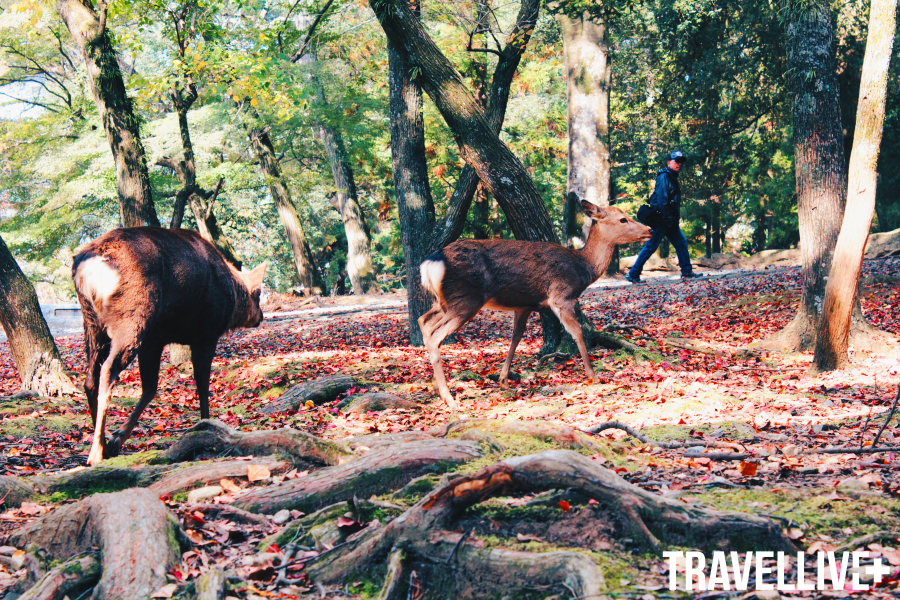
You can spend 150 yen to buy Nara-senbei crackers – a favorite snack of Nara deer – and feed them. If you have young children with you, this will be a fun experience because the kids can touch the animals up close without having to look at them through the bars of a zoo.
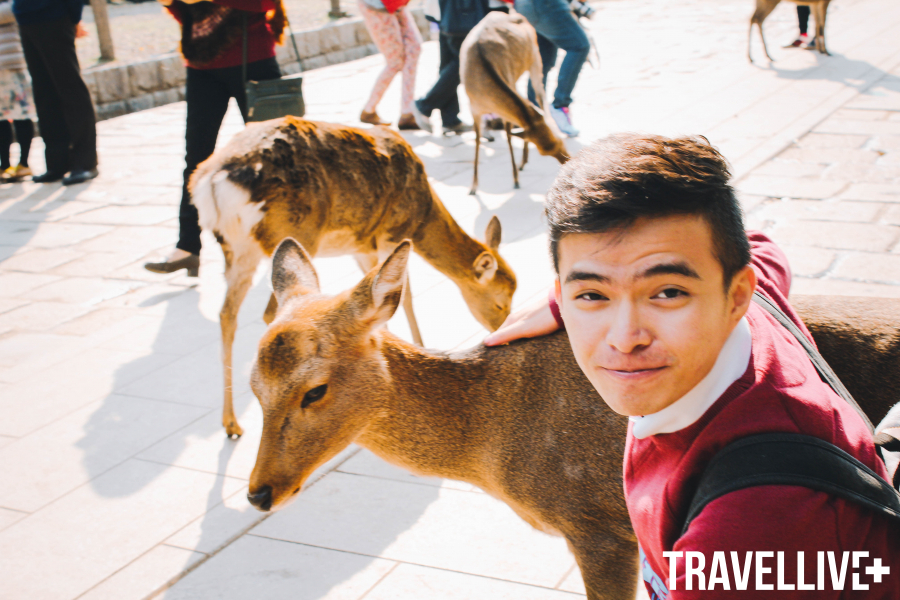
After having had enough fun with the deer, I strolled to a roadside cafe and ordered a bento box that was both visually appealing and delicious. Bento boxes are similar to Vietnamese set meals, but with a sophisticated and attractive presentation that makes diners crave them and feel a pang of regret when they finally pick them up. The food in each bento box is carefully calculated to include various proteins and five different fruits and vegetables, ensuring a balanced diet for the day.
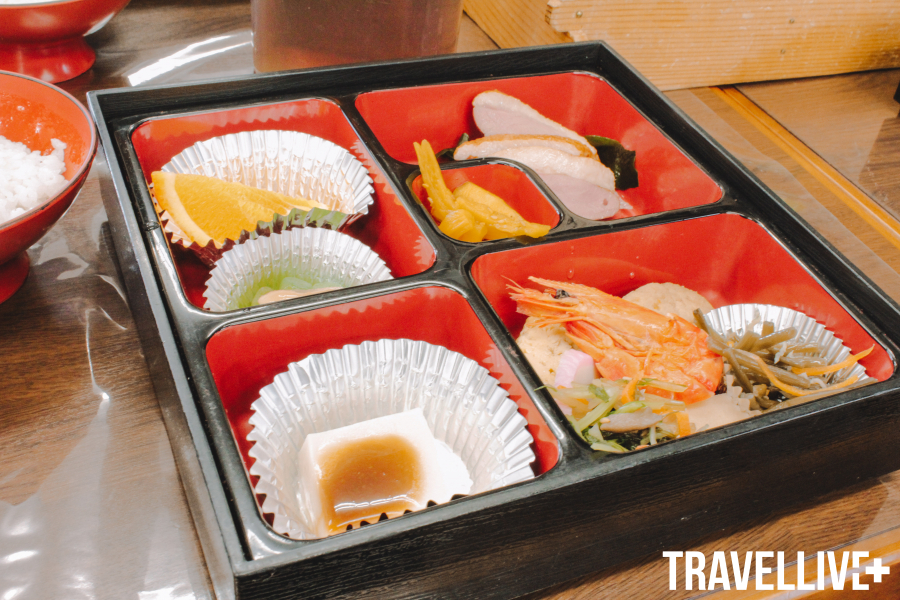
Lost in the ancient capital of Kyoto
For me, Kyoto is most beautiful in autumn. Located next to a mountainous area, Kyoto's scenery is truly magnificent when the leaves change color.
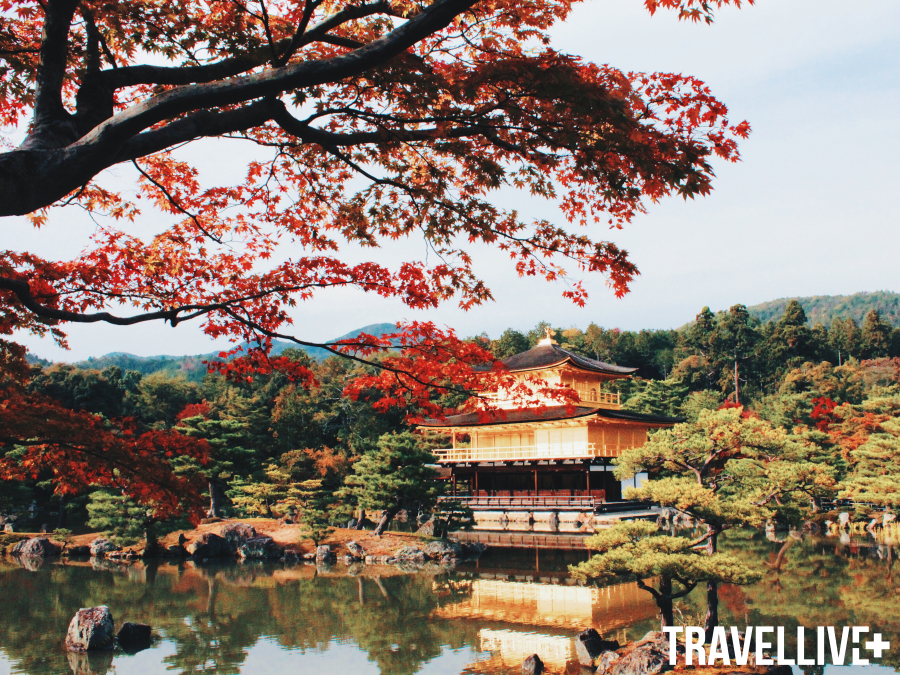
If you're visiting Kyoto and love temples, don't miss Kiyomizu-dera and Kinkaku-ji. Kiyomizu-dera is more beautiful than ever in autumn thanks to the surrounding red maple leaves. Kinkaku-ji is equally stunning with the bonsai trees around the pond turning a beautiful crimson. Arashiyama, Gion district, Inari Fushimi… are also places you should visit when in Kyoto. But for me, the best feeling in autumn is strolling along the slopes and watching Kyoto change color.
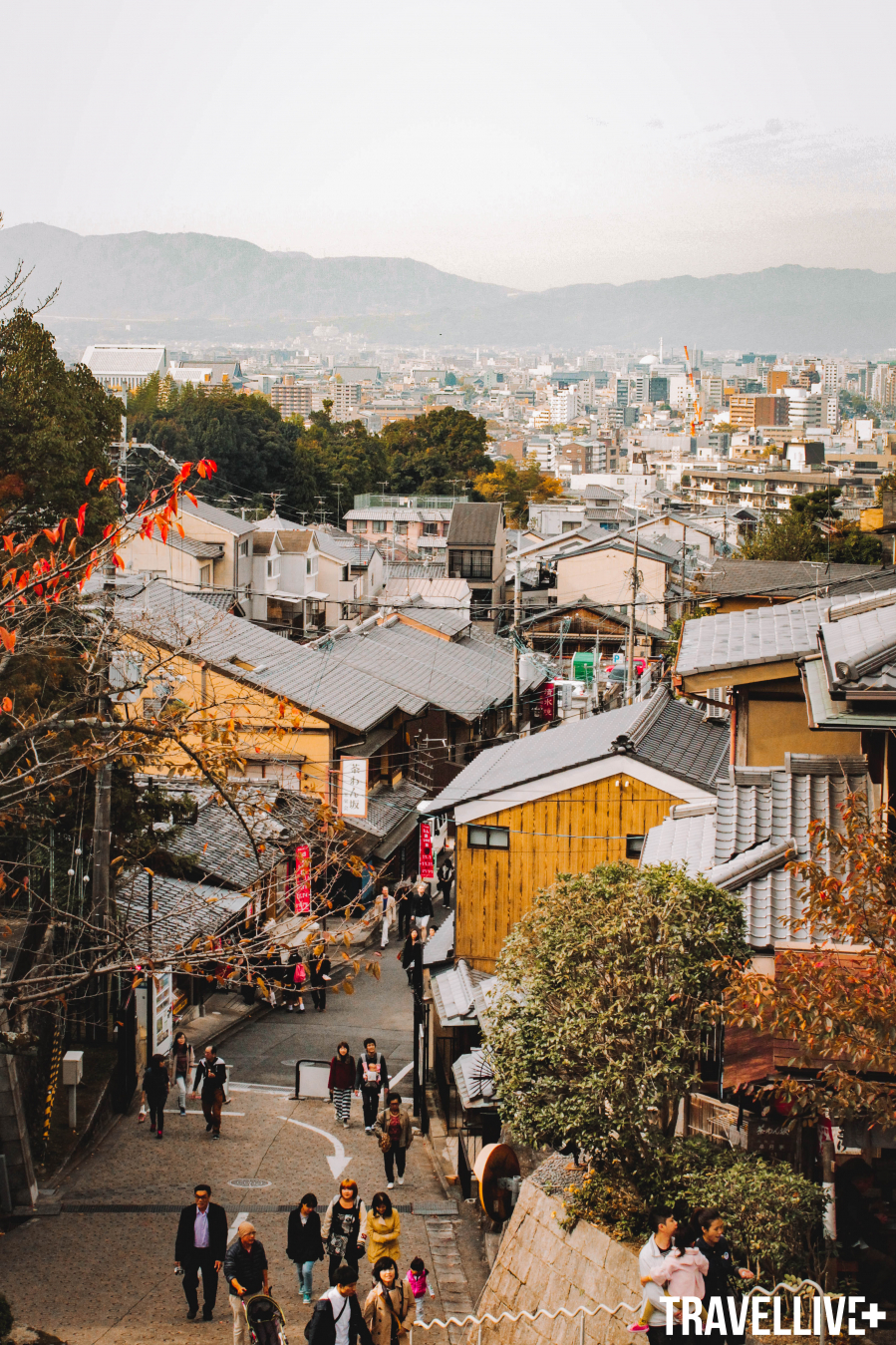
Mount Fuji in autumn
Mount Fuji, a sacred mountain, is renowned as one of the most beautiful places to enjoy autumn in Japan. The area around the five lakes is the perfect location to view Mount Fuji at this time of year. In particular, the view from Lake Kawaguchiko, with the mountain peeking out from behind rows of ginkgo trees turning yellow and maple trees displaying vibrant red leaves, is a truly breathtaking sight.
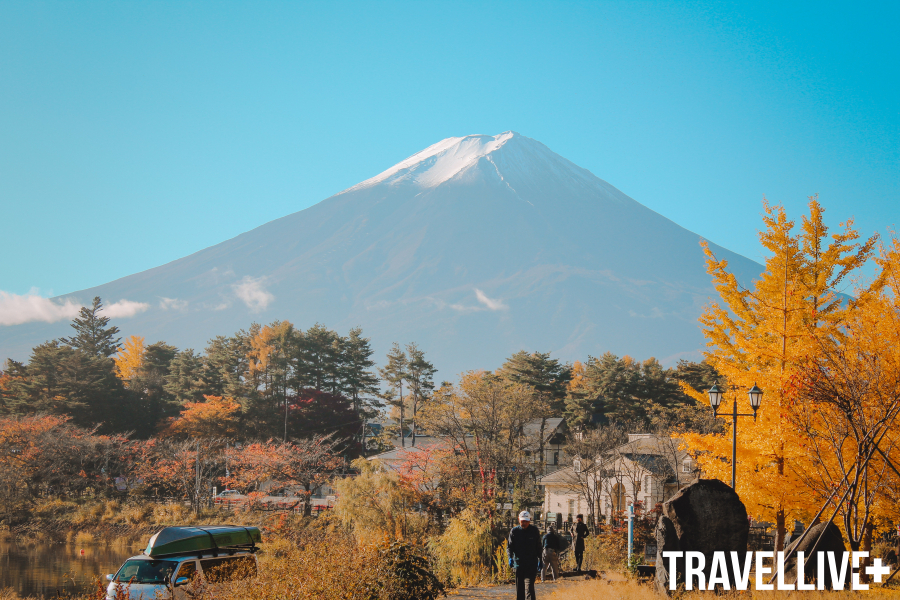
In autumn, Mount Fuji's peak is covered in a layer of snow, perfect for sightseeing – not as bare as in summer, but not as heavily covered as in winter. Reaching Station 5 – the highest station accessible by bus – is also easier, but most importantly, you need to time your visit with the right weather to see the mountain. On my first day, I went to Station 5 and couldn't see anything. But on the second day, from Lake Kawaguchiko, I was able to fully appreciate the beauty of Mount Fuji and the autumn colors of Japan.
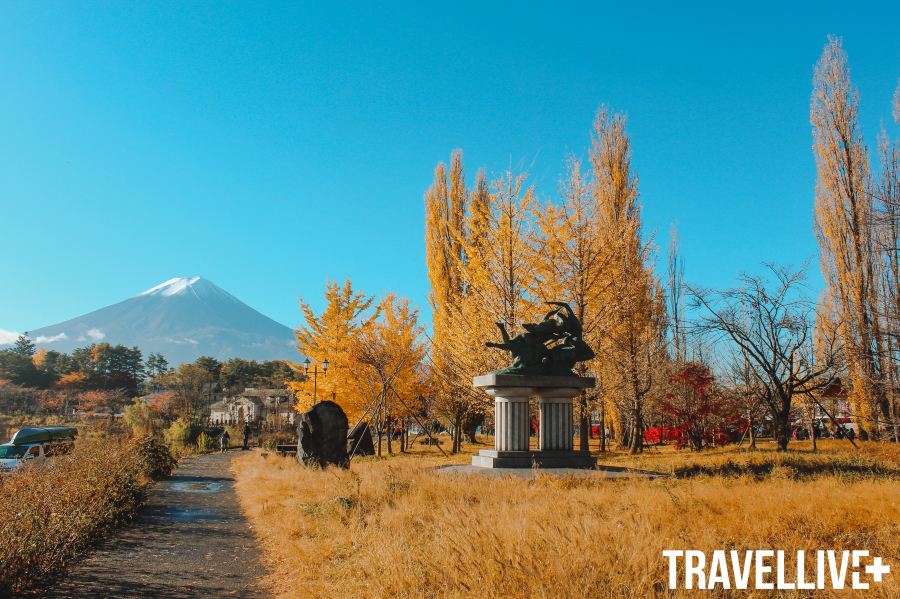
Autumn colors in Hakone, a stroll around Lake Ashi, and the Owakudani Valley.
The maple trees surrounding Lake Ashi provided me with a wonderful experience during a boat trip around the lake. I paid 1,000 yen for a 30-minute scenic boat ride, but that time was hardly enough to satisfy me, given the warm sunshine and breathtaking scenery. The lake was pristine and a vibrant blue, adorned with the colors of autumn. From the boat, you could see Mount Fuji, the greens and yellows of autumn dotting the mountain, and the clear sky – a perfect backdrop.
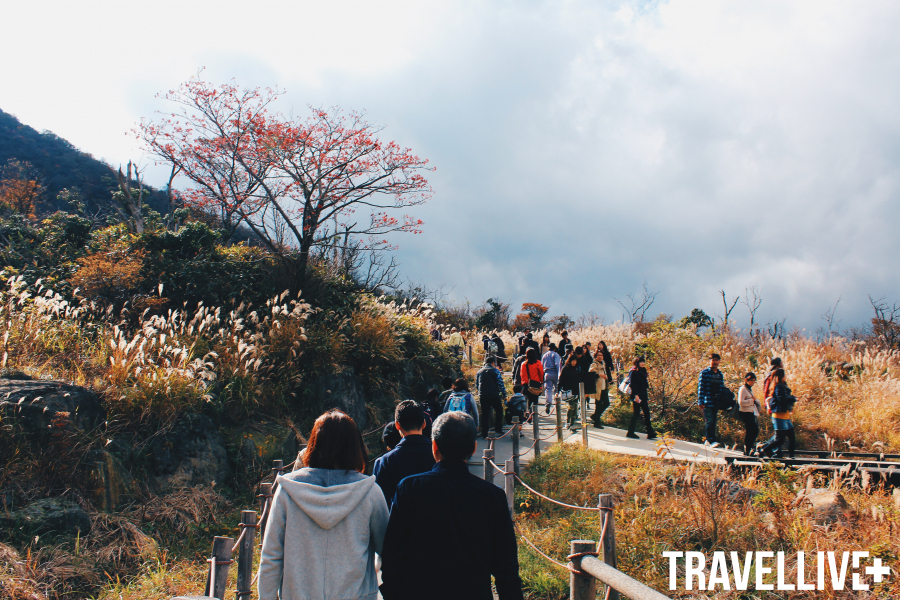
After strolling around the lake, the group stopped for lunch, enjoying bento boxes, tempura, and udon, before taking the cable car up the mountain to Owakudani. Who says we can't spend the morning in the water and the afternoon in the mountains all in one day? This cable car ride was arguably the best experience of my life. The feeling of floating in mid-air with the magnificent golden ginkgo trees below was indescribable.
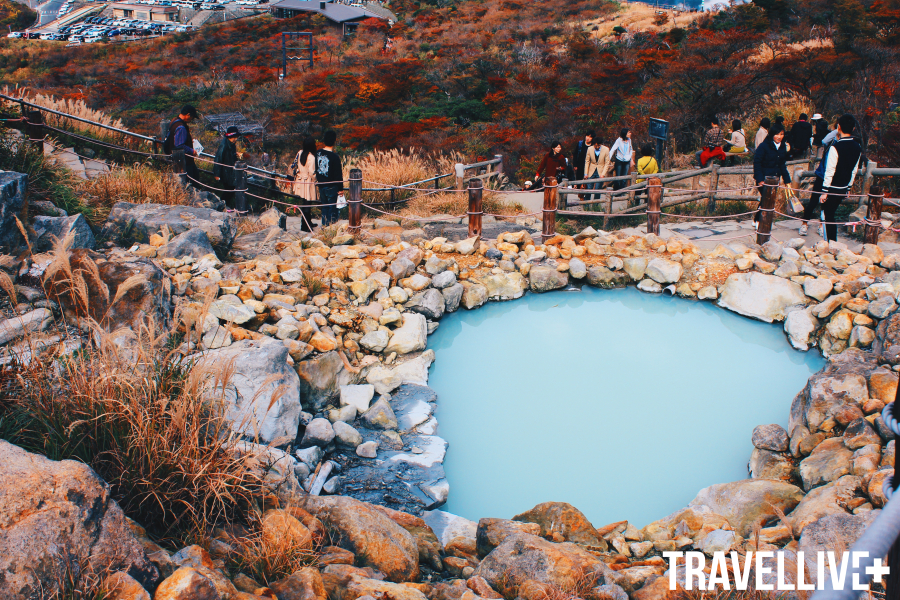
After 15 minutes, having passed the first station and stopped at the second, the group arrived at Hell Valley. However, the natural beauty here bore no resemblance to hell. Owakudani got its name from a period of intense volcanic activity during its formation. Today, you can still find columns of sulfurous smoke rising and many hot springs, as it remains an active volcanic area that could erupt at any time. Owakudani is breathtakingly beautiful, bathed in the golden hues of autumn, with its abundance of reeds and columns of sulfurous smoke, creating a feeling of being transported to a fairyland.
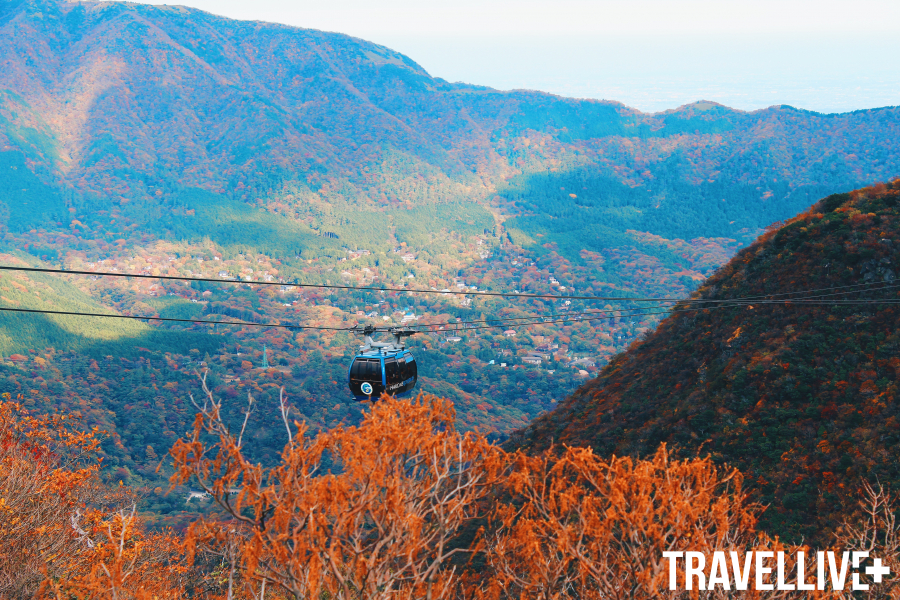
Grape picking in Yamanashi Prefecture
Yamanashi is considered the "Fruit Kingdom" of Japan, and you can pick peaches, grapes, or cherries in various seasons. I visited in the autumn, when the grapes are at their best. Grapes are also considered a premium gift. During a visit to Kawaguchiko, one of the Five Lakes, I happened to stop by a vineyard. A trip here is enough to experience the juicy grapes of the Yamanashi region.
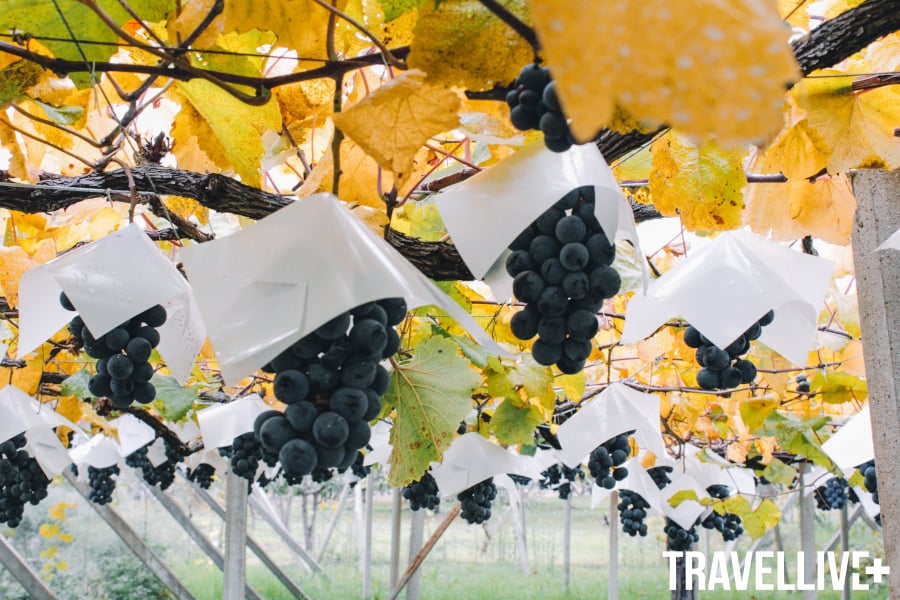
There are a few simple rules you must follow when picking grapes, as well as other fruits: Fruit must be eaten on the spot, you are not allowed to take fruit home, and you are not allowed to throw away any fruit you don't finish.
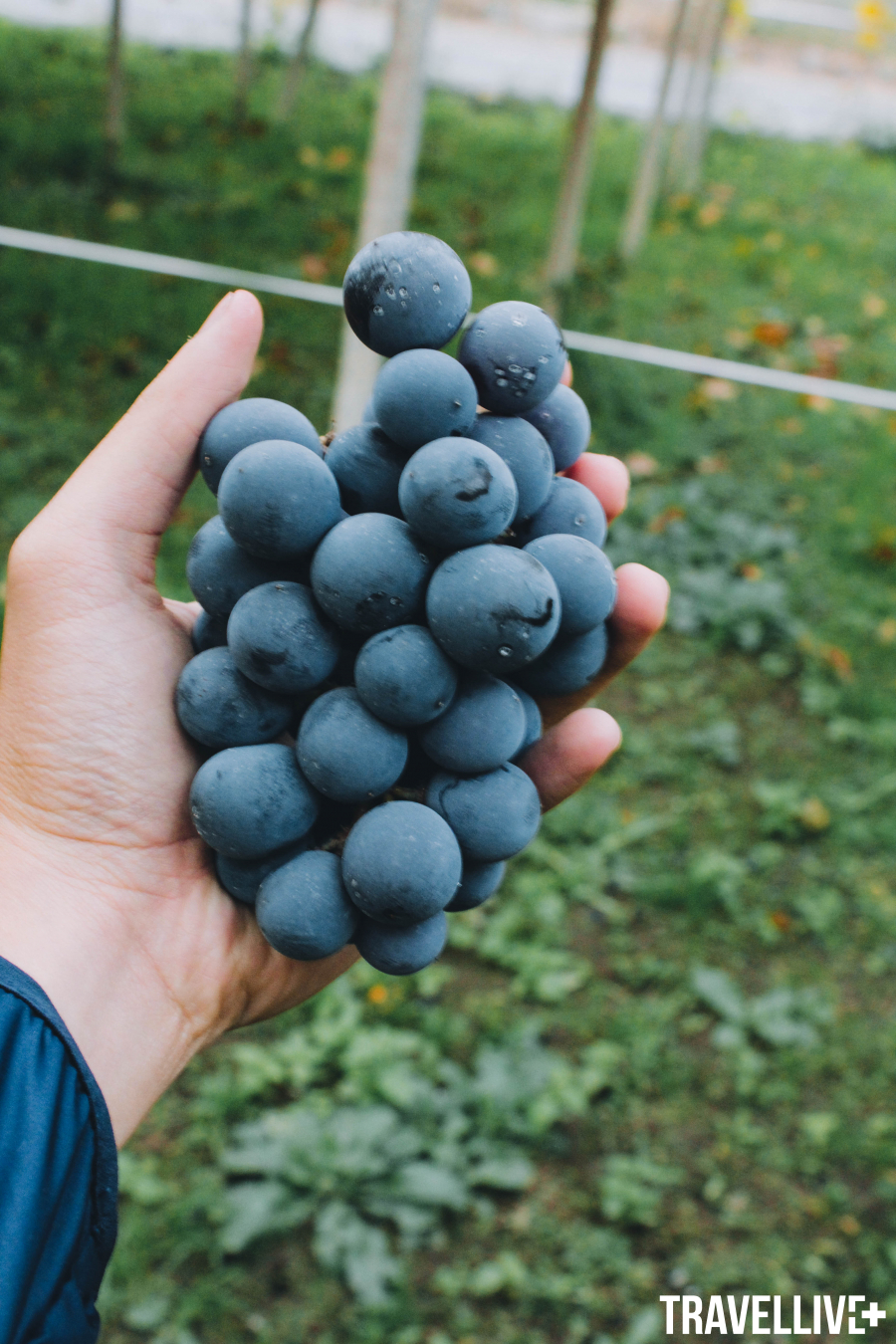
When picking grapes, the darker the color of the bunch, the riper and sweeter it will be. You must use scissors to cut the entire bunch, not pick individual grapes. Once picked, you need to eat them all on the spot, so don't pick a second bunch. The bloom on the outside of the grapes is a natural compound secreted by the grapes to protect themselves from pests, and it is perfectly safe to eat. To pick grapes at a premium vineyard, you need to pay 1,100 yen. If you choose a regular vineyard, you only have to pay 720 yen.
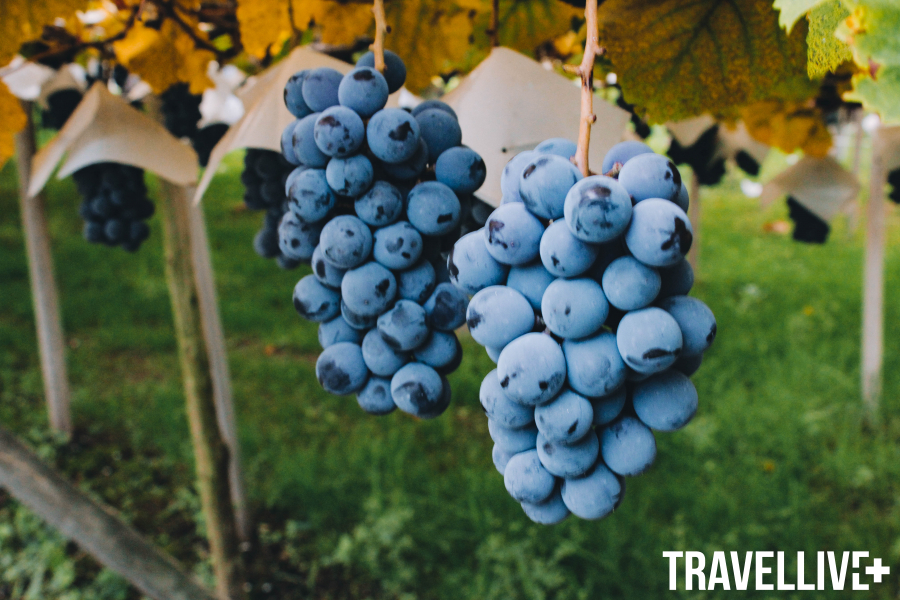
Viewing Kochia plants in Ibaraki
Kochia, also known as color-changing grass, is a unique plant that grows in spherical clumps with green leaves that turn a vibrant red in autumn. In early October, Miharashi Hill in Hitachi Seaside National Park (Ibaraki Prefecture) is covered with over 32,000 kochia plants, resembling a deep red carpet. This is the only place where you can witness the striking contrast between the red of the hill and the blue of the sky. But by the end of October, the color of the kochia hill gradually changes. Under the setting sun, the hill is bathed in a shimmering golden hue, creating an incredibly romantic autumn scene.
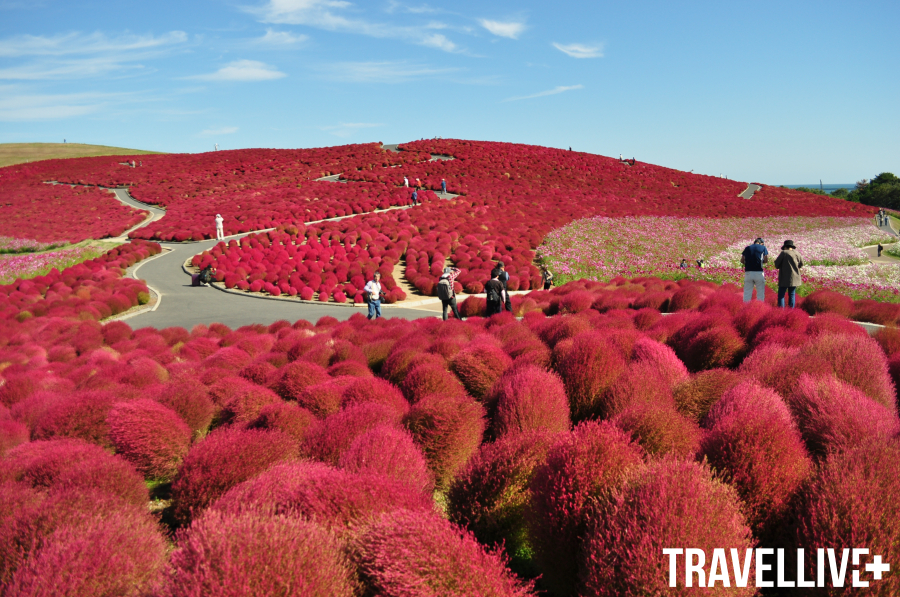

 VI
VI EN
EN



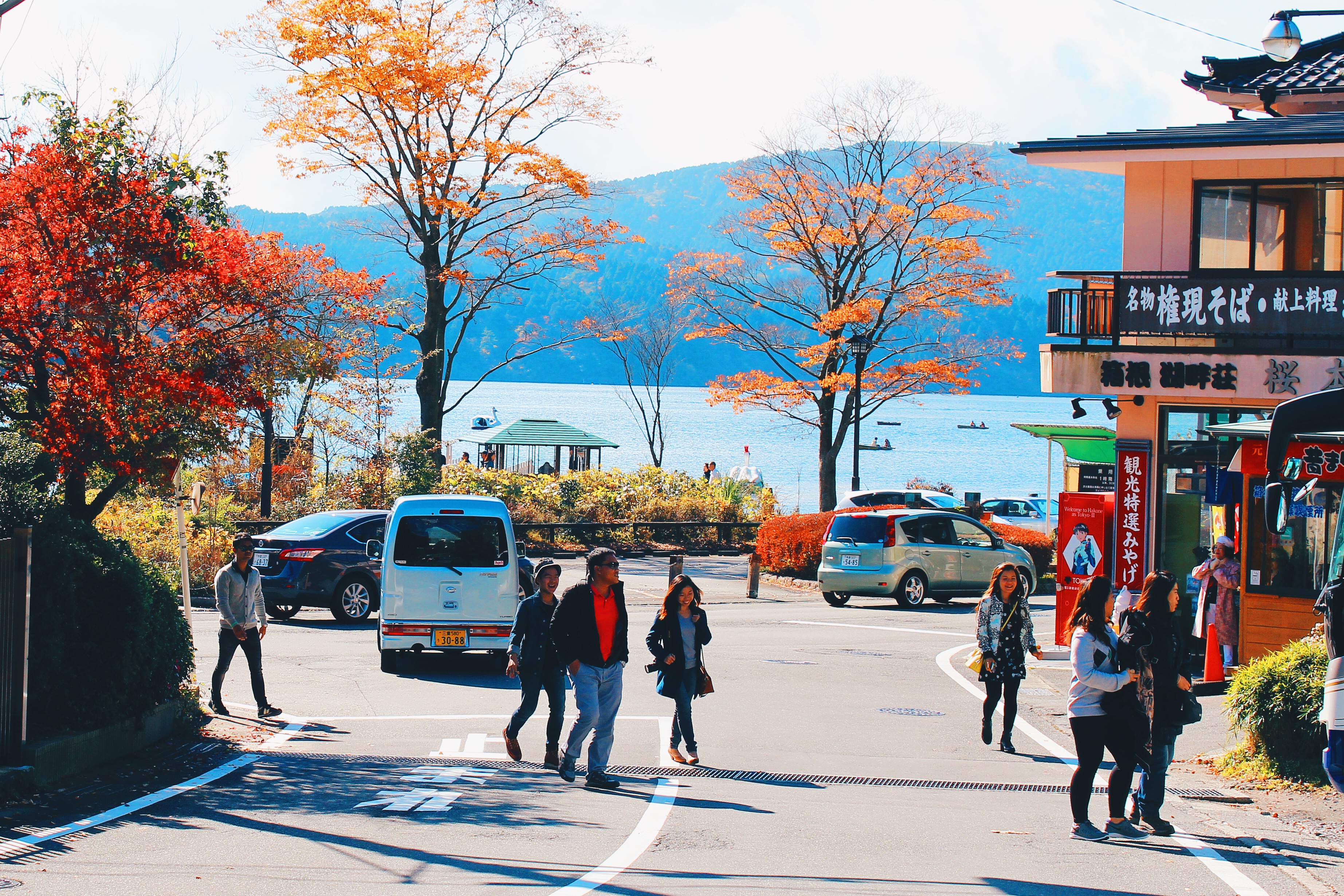















(Copy).jpg.jpg)




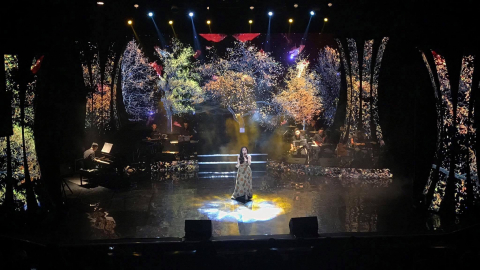
(Copy).jpg.jpg)






